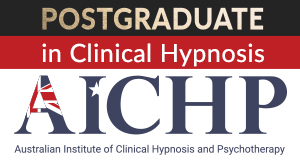ERICKSONIAN HYPNOTHERAPY
“Each person is a unique individual.
Hence, psychotherapy should be formulated to meet the uniqueness of the individual’s needs…”
Milton H. Erickson MD
ABOUT
The training is presented by the Ericksonian Institute of Sydney Australia (EISA), a registered training institute with the Ericksonian Foundation in Phoenix, Arizona, USA.
In the Ericksonian approach the uniqueness of individual experience is recognised and participants are taught and guided to utilise the personal resources of each person to tailor make specialised therapeutic solutions.
Hypnosis is viewed as a natural experience, occurring in everyday life and utilized in therapy.
Ericksonian therapy focuses on assisting individuals to use hypnosis to access and utilize their own unique resources and personal strengths in new ways to resolve difficulties they have struggled with previously.
Learning these skills will enhance a clinician’s therapeutic repertoire in therapy. This will enable practitioners to potentially reach more clients and increase their client base.
An increasing number of people are seeking out hypno-therapeutic treatments, particularly if offered by registered health care professionals.

Postgraduate Intensive Training in
Clinical Hypnosis and Strategic Psychotherapy
An Ericksonian Approach
15 Sessions / 80 HOURS
Module I: Introduction, Principles & Hypnotic Inductions: 6-8 March 2024
Module II: Advanced Inductions and Hypnotic Interventions: 8-10 May 2024
Module III: Advanced Hypnotic Techniques: 29-31 May 2024
Module IV: Clinical Applications: 31 July – 2 August 2024
Module V: Clinical Applications: 4-6 September 2024
Training Times: 14h00 to 19h00 (AEST/AEDT: Sydney Time Zone)
Platform: Zoom
The training is divided into five 2-day training modules to allow participants to practise and apply learnt skills in practice.
Modules I and II: Introduction, Hypnotic Inductions, Ego Strenghthening
Participants will be introduced to the fundamental historical-, contemporary- and neurophysiological understandings of hypnosis. How to elicit and utilise therapeutic trances for treatment will be taught, demonstrated and practised by participants. The Ericksonian approach is solutions orientated. The workshop explores the nature of human experience and pathology through understanding the particular phenomena involved in human experience and how these phenomena are the same phenomena in hypnosis and in symptoms. These phenomena can be understood and implemented to tailor unique therapeutic approaches for individuals. The fundamental training also focuses specifically on the observational process, the language of suggestion, induction approaches, self-hypnosis for therapeutic purposes, ego-strengthening, planning sessions and utilizing trance in clinical work. Professionals will be able to begin to integrate hypnosis into their practices after the first module of the training programme.
Educational Objectives
At the end of these modules you will:
- Understand the nature, history and theories of hypnosis
- Be updated on the science and neurology of hypnosis
- Hypnotic applications in medicine, psychotherapy and education
- Indications and contra-indications for utilizing hypnotic techniques
- Develop observational- and hypnotic communication skills
- Use the language of suggestion
- Utilize various induction principles to induce hypnosis, such as: perception, sensation, memory, fantasy, metaphors and anecdotes
- Do various direct-, indirect- and conversational inductions
- Teach clients self-hypnosis
- Ego-strengthening with clients
- Plan a therapeutic intervention
- Understand the ethical use and application of hypnosis
Module III: Advanced Techniques
During this module, participants will be taught how to design and tailor individualised hypnotherapeutic interventions, utilizing the unique strengths and resources of the individual. Strategic utilization of various hypnotic phenomena and the development of more advanced linguistic and communication skills will be developed. Indirection, sequencing, advanced induction approaches and creating personalised metaphors in therapy will be part of the training. Participants will develop a comprehensive understanding of hypnosis, how to define difficulties according to the symptom phenomena, plan the therapy, elicit trance, and utilise the unique experiences of clients to create personalised interventions.
Educational Objectives
At the end of this training you will:
- Understand and utilize the hypnotic phenomena in treatment
- Understand how to apply fundamental treatment interventions in hypnosis
- Understand and utilise symptom- and hypnotic phenomena
- Know how to access and utilize individual client resources in hypnosis
- Have the ability to develop specific hypnotic solutions for specific client difficulties
- Use advanced communication skills and language patterns
- Design individualised treatment approaches for clients
- Use advanced induction techniques, such as confusional inductions
- Utilize sequencing and pattern interruption in habit disorders
Module IV and V: Clinical Applications
During these 4 days the focus will be more specifically on hypnotic applications for particular clinical issues such as depression, anxiety, trauma, addictions, children and pain management. The advanced approaches and techniques will be further developed in their applications to specific problems in psychotherapy. This includes the assessment of a problem, developing a therapy plan and designing specific hypnotic session interventions. Even though the emphasis of the Ericksonian approach is to develop personalised intervention, treatment protocols to be utilised as a guide will be provided.
Educational Objectives
At the end of this training you will:
- Integrate Ericksonian hypnosis principles into therapy
- Utilise hypnosis with children
- Apply the principles in the treatment of depression
- Treat various anxiety conditions utilizing hypno-therapeutic approaches
- Apply these principles in the treatment of smoking-, alcohol-, drug- and other addictions.
- Utilize hypnosis in the treatment of pain and psychosomatic conditions
- Discussion of other areas of group interest
Early Bird Registration till 23 February 2023: 3300 AUD
(Full-time Students & Unpaid Interns: 1650 AUD)
Full Registration: 3600 AUD
(Full-time Students & Unpaid Interns: 1800 AUD)
Payment Plan:
3 payments of 1300 AUD (Total 3900 AUD)
(Full-time Students & Unpaid Interns: 3 payments of 650 AUD 1950 AUD)

PRESENTER
Carl Hattingh
Carl Hattingh (Callie) is an AHPRA registered Clinical Psychologist in private practice in Sydney. He is the President of AICHP and the Founding Director of the Milton H. Erickson Institute of Sydney Australia (EISA).
He is on the Board of Directors of the International Society of Hypnosis (ISH) and is President-Elect of Ego State Therapy International. He serves as co-chair of the Crisis and Intervention Committee of the International- and European Societies of Hypnosis and as a member of the training committee of ISH. Carl is also the President-elect of Ego State Therapy International (ESTI).
Carl received the Fuma award for his contribution to Promoting Clinical Hypnosis and Psychotherapy in South Africa. He is one of the past founding Directors of the Milton H. Erickson Institutes of South Africa (MEISA), past President Elect of the Milton H. Erickson Society of South Africa and founding Director of the Milton H. Erickson Institute of Cape Town South Africa (MECSA). He is the organiser of various congresses on eContemporary Approaches to the Management of Trauma and presents internationally on the topic of hypnosis, Ego State Therapy and somatic approaches to psychotherapy. He has been a trainer in Ericksonian Hypnosis and Ego State Therapy since 2000. He is a registered supervisor and trainer with Ego State Therapy International (ESTI) and a registered Somatic Experiencing Pracitioner (SEP).
Carl has been a keynote speaker and faculty member at various international congresses.

